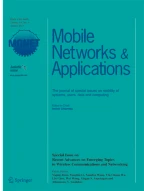Abstract
This paper proposes a personalized learning resource recommendation method based on dynamic collaborative filtering algorithm. Pearson correlation coefficient is used to calculate the data similarity between learning users or project resources in the network, and the unscored value is obtained. In order to solve the problems of sparse data and poor scalability in collaborative filtering algorithm, dynamic k-nearest-neighbor and Slope One algorithm are used to optimize it, and the sparsity of learning resource data in the network is analyzed according to the result of neighbor selection. The bidirectional self-equalization of stage evolution is used to improve the personalized recommendation of resource push, and the fuzzy adaptive binary particle swarm optimization algorithm based on the evolution state judgment is used to solve the problem of the optimal sequence recommendation, so as to realize the personalized learning resource recommendation. The experimental results show that the proposed method has higher matching degree and faster recommendation speed.
Similar content being viewed by others
References
Shuai L, Chunli G, Fadi AT, Khan M et al (2020) Reliability of response region: a novel mechanism in visual tracking by edge computing for IIoT environments. Mech Syst Signal Process 138:106537
Shu J, Shen X, Liu H, Yi B, Zhang Z (2018) A content-based recommendation algorithm for learning resources. Multimedia Systems 24(2):163–173
Tarus JK, Niu Z, Mustafa G (2018) Knowledge-based recommendation: a review of ontology-based recommender systems for e-learning. Artif Intell Rev 50(1):21–48
Zhou Y, Huang C, Hu Q, Zhu J, Tang Y (2018) Personalized learning full-path recommendation model based on LSTM neural networks. Inf Sci 444:135–152
Abualigah LM, Khader AT, Hanandeh ES (2018) A new feature selection method to improve the document clustering using particle swarm optimization algorithm. J Comput Sci 25:456–466
Logesh R, Subramaniyaswamy V, Vijayakumar V, Gao XZ, Indragandhi V (2018) A hybrid quantum-induced swarm intelligence clustering for the urban trip recommendation in smart city. Futur Gener Comput Syst 83:653–673
Feng B, Fu Q, Dong M, Guo D, Li Q (2018) Multistage and elastic spam detection in mobile social networks through deep learning. IEEE Netw 32(4):15–21
Xiao J, Wang M, Jiang B, Li J (2018) A personalized recommendation system with combinational algorithm for online learning. J Ambient Intell Humaniz Comput 9(3):667–677
Xie Q, Xiong F, Han T, Liu Y, Li L, Bao Z (2018) Interactive resource recommendation algorithm based on tag information. World Wide Web 21(6):1655–1673
Fu M, Qu H, Yi Z, Lu L, Liu Y (2018) A novel deep learning-based collaborative filtering model for recommendation system. IEEE Trans Cybernet 49(3):1084–1096
Xu L, Jiang C, Chen Y, Ren Y, Liu KJR (2018) User participation in collaborative filtering-based recommendation systems: a game theoretic approach. IEEE Trans Cybernet 49(4):1339–1352
Jeong H, Sun AY, Lee J, Min B (2018) A learning-based data-driven forecast approach for predicting future reservoir performance. Adv Water Resour 118:95–109
Yin C, Shi L, Sun R et al (2019) Improved collaborative filtering recommendation algorithm based on differential privacy protection. J Supercomput 48(4):1–14
Liu S, Liu G, Zhou H (2019) A robust parallel object tracking method for illumination variations. Mobile Netw Appl 24(1):5–17
Wu Y, ZHao Y, Wei S (2020) Collaborative filtering recommendation algorithm based on interval-valued fuzzy numbers. Appl Intell 45(12):1–13
Shuai L (2019) Introduction of key problems in long-distance learning and training. Mobile Netw Appl 24(1):1–4
Liu S, Wang S, Liu X, Lin CT, Lv Z (2020) Fuzzy detection aided real-time and robust visual tracking under complex environments. IEEE Trans Fuzzy Syst:1. https://doi.org/10.1109/TFUZZ.2020.3006520
Li HJ, Zhang Z, Zhang PW (2019) Recommendation method of personalized learning resources based on collaborative control of three-dimensional characteristics. Computer Science 96(S1):461–467
Kang LY, Kang LY, Wang JF et al (2018) Overview of parallel and distributed optimization algorithms for scalable machine learning. Journal of Software 29(1):109–130
Shuai L, Xinyu L, Shuai W et al (2020) Fuzzy-aided solution for out-of-view challenge in visual tracking under IoT assisted complex environment. Neural Comput Applic. https://doi.org/10.1007/s00521-020-05021-3
Wang Q, Zeng C, Zhou W et al (2018) Online interactive collaborative filtering using multi-armed bandit with dependent arms. IEEE Trans Knowl Data Eng 31(8):1569–1580
Mohammadpour T, Bidgoli AM, Enayatifar R, Javadi HHS (2019) Efficient clustering in collaborative filtering recommender system: hybrid method based on genetic algorithm and gravitational emulation local search algorithm. Genomics 111(6):1902–1912
Jiang S, Fang SC, An Q, Lavery JE (2019) A sub-one quasi-norm-based similarity measure for collaborative filtering in recommender systems. Inf Sci 487:142–155
Xue F, He X, Wang X, Xu J, Liu K, Hong R (2019) Deep item-based collaborative filtering for top-n recommendation. ACM Trans Info Syst (TOIS) 37(3):1–25
Kim S, Kim H, Min JK (2019) An efficient parallel similarity matrix construction on MapReduce for collaborative filtering. J Supercomput 75(1):123–141
Acknowledgments
This paper is supported by project of Teaching Research of Undergraduate Teaching Engineering of Fuyang Normal University with No.2019JYXM35, Provincial College Students’ innovation and Entrepreneurship Project of Anhui with No.S201910371062, Natural Science Foundation of Hunan Province with No.2020JJ5368, and Natural Science Foundation of Inner Mongolia with No.2018MS6010.
Author information
Authors and Affiliations
Corresponding author
Additional information
Publisher’s note
Springer Nature remains neutral with regard to jurisdictional claims in published maps and institutional affiliations.
Rights and permissions
About this article
Cite this article
Wang, H., Fu, W. Personalized Learning Resource Recommendation Method Based on Dynamic Collaborative Filtering. Mobile Netw Appl 26, 473–487 (2021). https://doi.org/10.1007/s11036-020-01673-6
Accepted:
Published:
Issue Date:
DOI: https://doi.org/10.1007/s11036-020-01673-6
